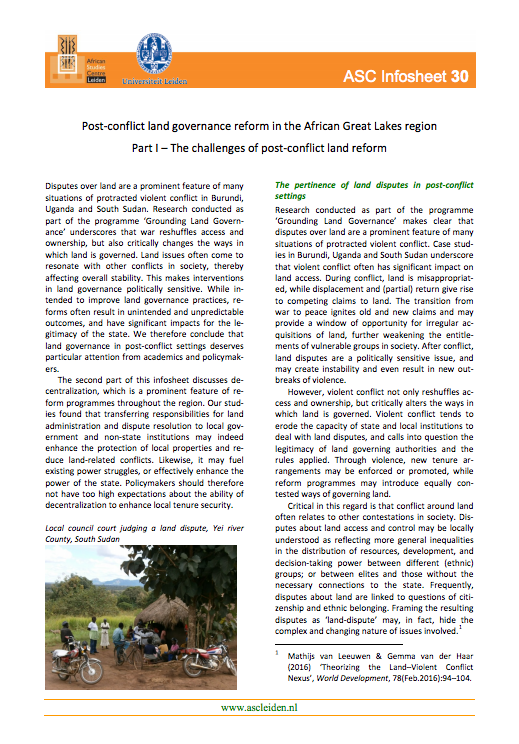Resource information
Disputes over land are a prominent feature of many situations of protracted violent conflict in Burundi, Uganda and South Sudan. Research conducted as part of the programme ‘Grounding Land Governance’ underscores that war reshuffles access and ownership, but also critically changes the ways in which land is governed. Land issues often come to resonate with other conflicts in society, thereby affecting overall stability. This makes interventions in land governance politically sensitive. While intended to improve land governance practices, reforms often result in unintended and unpredictable outcomes, and have significant impacts for the legitimacy of the state. We therefore conclude that land governance in post-conflict settings deserves particular attention from academics and policymakers.
The second part of this infosheet discusses decentralization, which is a prominent feature of reform programmes throughout the region. Our studies found that transferring responsibilities for land administration and dispute resolution to local government and non-state institutions may indeed enhance the protection of local properties and reduce land-related conflicts. Likewise, it may fuel existing power struggles, or effectively enhance the power of the state. Policymakers should therefore not have too high expectations about the ability of decentralization to enhance local tenure security.



